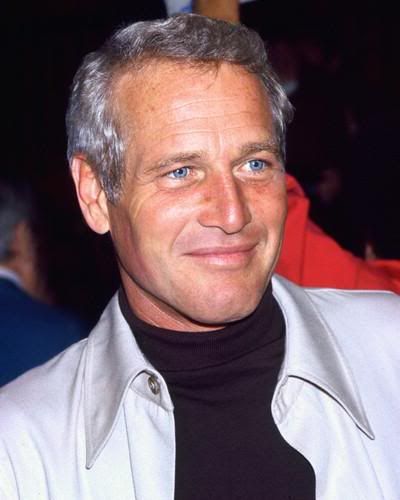
Σαν χωρίς να το θυμάμαι πια, ο Αλεξάντρ Σολζενίτσιν έφτιαξε μέρος της ζωής μου στην ηλικία που άρχισα να σπουδάζω και να ψάχνω (απελπισμένα πολλές φορές) να καταλάβω πού βρίσκομαι και αν πουθενά με περιμένει κάτι.
Ο άνθρωπος αυτός στράφηκε και κοίταξε κατάματα ολόκληρο τον ολοκληρωτισμό της Σοβιετικής Ένωσης, και "έπαιξε σημαντικό ρόλο για να τελειώσει ο κομμουνισμός", ένας μόνος απέναντι στην ιστορία μέσα στον 20o αιώνα. Φαντάσου: ένα καγιάκ στη μέση του Ατλαντικού. Δέος ...
Κάπως σα να πέθανε παπούς μου, είμαι ήσυχος και λυπημένος.
Η νεκρολογία είναι του BBC.
A look at the life of Alexander Solzhenitsyn
Alexander Solzhenitsyn, who has died at the age of 89, played a significant role in ending communism. His novels were beautifully crafted, damning indictments of the repressive Soviet regime.
Born into a family of Cossack intellectuals, Alexander Solzhenitsyn graduated in mathematics and physics, but within weeks the Soviet Union was fighting Hitler for its survival.
Solzhenitsyn served as an artillery officer and was decorated for his courage, but in 1945 was denounced for criticising Stalin in a letter.
He spent the next eight years as one of the countless men enduring the gulags. He was one of the lucky ones to survive.
There followed a period of internal exile in Kazakhstan during which Solzhenitsyn was successfully treated for stomach cancer.
Instant celebrity
On his return to European Russia, he was allowed, following Khrushchev's denunciation of Stalin, to publish his largely autobiographical One Day in the Life of Ivan Denisovich, in 1962.
 Solzhenitsyn spent eight years in labour camps |
This made him an instant celebrity. But with the subsequent fall from power of the reformist Khrushchev, the KGB stepped up its harassment of Solzhenitsyn, forcing him to publish his work abroad.
His novels The First Circle and Cancer Ward were further damning allegories of the Soviet system.
In 1970, he was awarded the Nobel Prize for Literature. But he refused to attend the award ceremony in Stockholm for fear of not being allowed back home.
In 1973, the first of the three volumes of The Gulag Archipelago was published in the West. He had been hiding the novel from the authorities, fearful that people mentioned in it would suffer reprisals.
Branded a traitor
But his former assistant, Elizaveta Voronyanskaya, revealed its location after being interrogated by the KGB after which she hanged herself.
So Solzhenitsyn decided to publish it. The Gulag Archipelago offered a detailed account of the systematic Soviet abuses from 1918 to 1956 in the vast network of prison and labour camps.
 He exposed Stalin's tyranny |
Its publication led to a violent campaign against Solzhenitsyn in the Soviet press which denounced him as a traitor.
In early 1974, even Solzhenitsyn's world reputation could not prevent his arrest. But rather than put him on trial, the Soviet authorities stripped him of his citizenship and expelled him from the country.
In exile, he continued to be a source of controversy, notably when he issued a series of documents which cast serious doubt on Mikhail Sholokov's authorship of the novel And Quiet Flows the Don.
Many of his utterances were discursive and even baffling, and the admiration for him was not entirely uncritical.
Eventually, he settled in Vermont in the USA with his second wife and their three sons. Here, he completed the other two volumes of The Gulag Archipelago.
Return to Russia
Prussian Nights, a long narrative poem about the Red Army's vengeful advance into East Prussia in 1945, was published in 1977. He was said to have composed the poem and committed it to memory 25 years before, during his years in prison.
But Solzhenitsyn also rejected liberalism, dismissing the notion of democracy introduced by Gorbachev and Yeltsin as a myth. He was equally scathing of Western liberalism.
He returned to Russia in 1994 and told the Russian parliament, the Duma, that post-communist Russians were not living in a democracy.
He denounced politicians as being corrupt, and appeared regularly on television to voice his disapproval of the country which had first reviled and then embraced him.
In 2000, his book, Two Hundred Years Together, again covered sensitive ground in exploring the position of Jews in Soviet society.
He denied some charges of anti-Semitism. Gradually, his own people no longer had quite the desire to listen so carefully to his criticisms.
But former President Vladimir Putin courted his approval towards the end of the author's life, personally visiting his home in 2007 to award him the State Prize of the Russian Federation for his humanitarian work.
In 2006, the first Russian film based on one of his novels - The First Circle (V Kruge Pervom) - was shown on Russian state television, four decades after it was published.
The 10-part TV film depicted the terror of Stalin's regime, describing the Soviet Union as a huge prison camp.
Also in 2006, Solzhenitsyn, then 87, castigated Nato, accusing it of trying to bring Russia under its control.
He accused the organisation of "preparing to completely encircle Russia and deprive if of its sovereignty".
By then, Alexander Solzhenitsyn had already secured his place in history as one of the greatest Russian writers of the 20th Century.






















